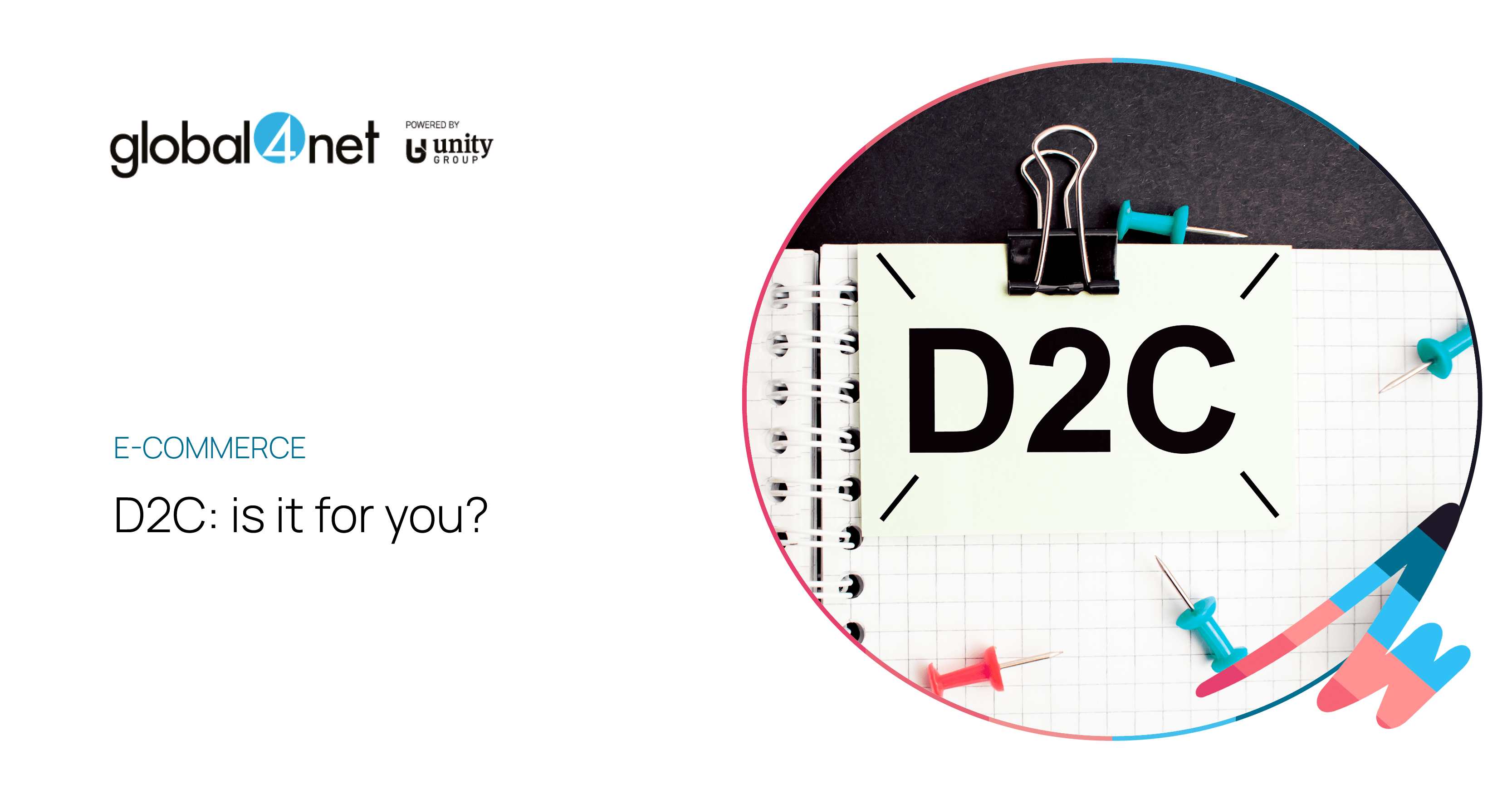ul. Strzegomska 2-4
53-611 Wrocław
NIP 8992786490
KRS 0000608120
REGON 363987723
Global4Net Sp. z o. o.
+48 71 358 41 00
© 2009 – Global4Net. All Rights Reserved.

Selling products online can have many forms and shapes. A D2C e-commerce model emerged recently, as brands are highly interested in building their customer bases. D2C entails many benefits for the stores that do it correctly. Let’s have a closer look at what direct-to-consumer sales are about.
D2C (or DTC, as it’s sometimes called) stands for direct-to-consumer, and the truth is, the name is pretty much self-explanatory. D2C e-commerce is all about selling products directly to customers with no intermediaries. In other words, a company that pursues the D2C model offers its products only via its online store.
This means:
What’s more, the direct-to-consumer model means that all the crucial production and sales-related activities are the sole responsibility of the company. This includes:
But, on the upside, the whole sales of a given company remain in its hands and under its full control.
The popularity of the D2C sales model is on the rise. Take a look at this chart showing D2C sales in the United States. The upward trend is obvious:

And while D2C is generally a good idea, this model is not for everyone. Let’s dig a bit deeper.
That depends, but we can certainly say this model is NOT for every online store. For D2C to work, your store needs to have a sufficiently large customer database to keep it running. Let’s analyze a simple scenario – you’ve just started your online store, and you heard that D2C is the next big thing in online trade.
You decide to focus on your store and leave all the marketplaces and other selling possibilities out. But no one knows about your store, right? So, who will place orders? What will keep your store afloat? The only answer is you must invest heavily in really good marketing. But the next question immediately emerges: Can you afford it? Building a brand-new online store from scratch is very difficult, mostly because of huge competition. If you cannot invest a significant amount of money in good marketing strategies, D2C is probably not the best idea for your store.
And here’s a different scenario. Suppose you already have a large and recognizable brand. You have a well-developed customer base and online marketing strategies in place. In that case, you can give D2C a shot, as you will be able to stay afloat even when you decide to leave Amazon or any other platform.
Technically, a company operating in the D2C model should sell its products ONLY through its first-party channels. If you add other strategies into the mix, it’s no longer direct-to-consumer; it’s typical B2C. And the truth is, the vast majority of the biggest companies out there prefer the omnipresence strategy, as it gives them more exposure.
Take Apple, for example. Sure, you can buy their products via their online store (and there are thousands of Apple brick-and-mortar stores out there), but customers can buy Apple products also in large electronics retailers like BestBuy or MediaMarkt.
According to Statista, back in 2020, Apple generated almost $32 billion in revenue through the D2C channel. That’s less than 20% of their entire revenue:

Direct-to-consumer sales come with several benefits that are surely worth your attention:
As we’ve already mentioned, direct-to-consumer comes with several challenges. Let’s have a look at them:
So, what’s the verdict? While direct-to-consumer is a good idea, it can be tricky to implement it, especially in a relatively new or small e-commerce business. If you want to pursue this strategy, you will surely need a lot of money and patience. But once you get there, the vast majority of what you make stays in your pocket.
Every reader has to analyze the pros and cons and make an informed decision based on what’s best for their business. Whatever you decide, if you want to start an online store, we’ve got your back! We specialize in e-commerce, and for companies that want to start or improve their e-commerce game, we offer e-commerce consulting services.
Reach out today to find out more!
Write to us




